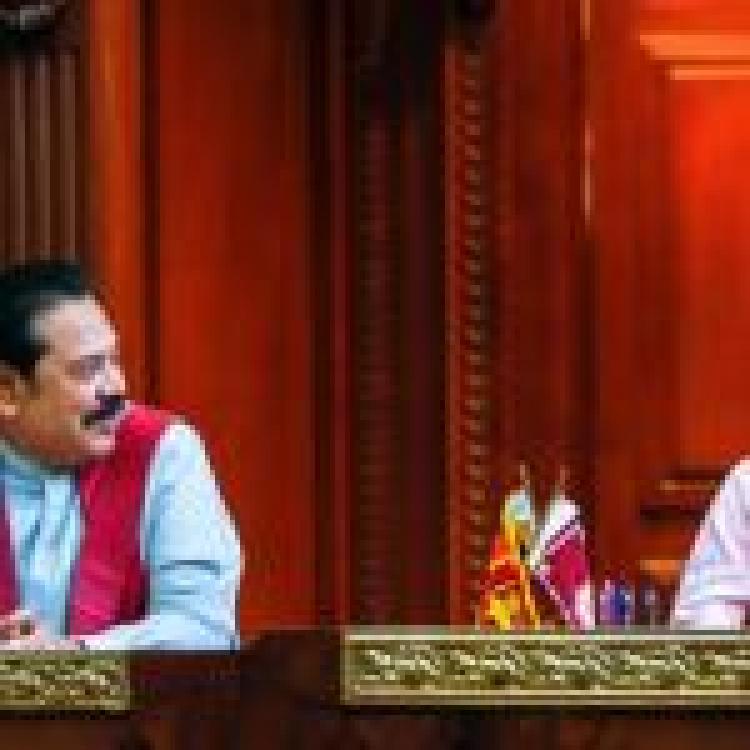Writing in Al Jazeera, the Advocacy Director for the Washington DC-based People for Equality and Relief in Lanka (PEARL), and a Human Rights Fellow at the Colin Powell School for Civic and Global Leadership, Mario Arulthas, urged the international community to take urgent action to protect Tamils in Sri Lanka following the former president's return to power last week.
Read full article here.
Extracts published below:
"The Rajapaksa brothers have been plotting for a political comeback since their downfall in 2015. Tamil activists, who say they always knew Rajapaksas would one day return, are now revisiting their safety protocols, switching to secure messaging apps and sharing emergency contact details.
They speak in hushed voices as if someone is listening. They sound uneasy but also resigned to another period of repression, painfully aware of the inevitability of a crackdown that has been so regular since the establishment of the Sri Lankan state 70 years ago.
However, not all Sri Lankans are fearful about the return of the Rajapaksa brothers. Most Sinhala people - who are the majority in Sri Lanka - are not equally bothered by the President's decision to sack the prime minister. Some are even celebrating the change of government the way they celebrated the defeat of the LTTE in 2009. That year Tamils across the country had barricaded themselves inside their homes fearing for their lives, mourning their losses in private, as the rest of the country celebrated a victory that cost tens of thousands of civilian lives.
In 2009 they lit firecrackers while we hid inside. Today, again they are celebrating while we once again familiarise ourselves with a fear close enough in the past to remember, but, until now, possibly far enough for us to shut away,” the partner of a person disappeared in the civil war told me, as the news broke."
"Throughout Rajapaksa's tenure as president Western powers occasionally asked the Sri Lankan government to demonstrate a clear commitment to human rights and accountability, but they never attached any decisive timelines or punitive actions to these demands. When Rajapaksa was ousted from power and replaced by Sirisena in 2015, most global actors chose to believe the new government's pledges for reform and allowed it to lead any reconciliation and accountability efforts.
Within the same year, a US-backed UN resolution that called for a "hybrid" court involving international judges to investigate the alleged crimes against humanity committed during the war was adopted with Sri Lanka's support. However within months, Sri Lanka began backtracking from its commitments in the resolution - pledging that no foreigners would be allowed to take part in any such mechanism. In turn, the US and other western countries, toned down their demands for a "hybrid court" and supported Sri Lanka's desire to deal with the crimes domestically - a fatal mistake, one that betrayed thousands of Tamils' longing for justice.In the following years, despite concerns raised by Tamils, international actors encouraged Tamil activists and journalists, as well as other dissidents, to participate in state initiatives for reconciliation and to exercise their civil liberties, even though there was no reliable, structure offering them long-term protection from possible state retribution. This, as we can clearly see now, put even more people at risk.
The justice sought by Tamils is for horrendous violations of international humanitarian law, that preclude any possibility of domestic accountability. The perpetrators of these crimes remain free. And even more worryingly, the politicians that oversaw these crimes are now back in power.
However, it is still not too late for the international community to rectify past mistakes. Sri Lankan authorities have been given an easy ride after committing horrendous crimes so far and the relative stability of the last three years allowed the world to turn a blind eye to ongoing injustices. Now the world can, and should, take action to protect the most vulnerable members of the Sri Lankan society. A message needs to be sent to whoever is in charge of the Sri Lankan government: The state can not get away with the crimes it already committed, and it will not be allowed to commit new ones.
Any Sri Lankan government should be made to understand that repurcussions will be severe if it refuses to commit to significant reforms and a genuine process of accountability for war crimes. If the international community fails to guarantee this, Tamils of Sri Lanka will inevitably face yet another era of repression, persecution and pain."

